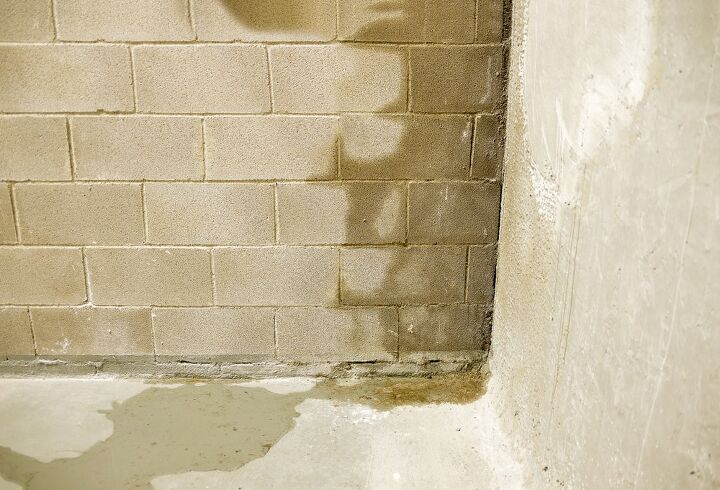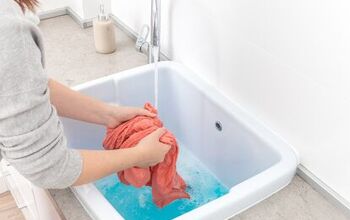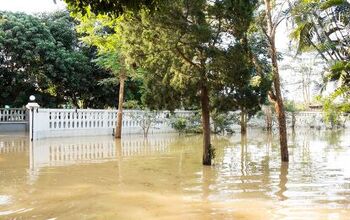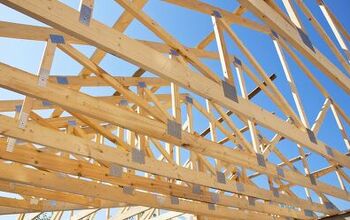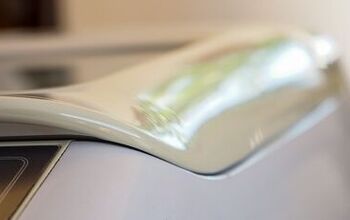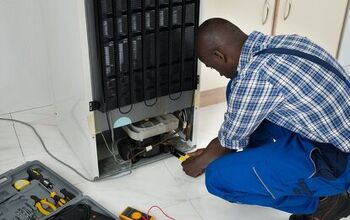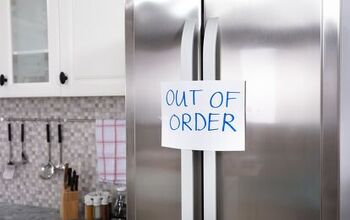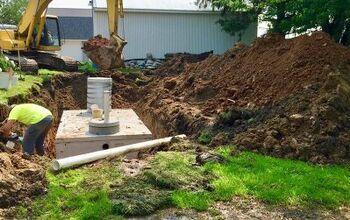Is Water Leaking Into The Basement After Heavy Rain?

It’s stressful when a strong storm carrying heavy rains and flash flooding passes through, especially when you are a homeowner. The significant wind and rainfall has a tendency of highlighting all the vulnerabilities of your home’s exterior.
After the storm passes and you start surveying the damage, you might look in horror when you walk down the steps into your basement to find that water is leaking in. If you find that water is leaking into your basement after a heavy rain, you need to identify and solve the problem as quickly as possible.
If you notice water leaking into your basement, there is a good chance it is coming through a crack or vulnerable area. Check for cracks in your foundation, poorly-sealed basement windows, and poorly sealed corners and edges. The problem may also be the foundation itself if it was poorly installed. Make sure you check your sump pump as well to ensure it is not the cause.
Once you notice water leaking into your basement, you should make sure you investigate further. The problem must be addressed immediately, even if the leaking seems minimal. This issue likely won’t go away on its own, and can cause mold, ruin your belongings and even cause structural damage to the home itself. The first step in solving the problem is finding out exactly where the issue is coming from.
Possible Causes For Water In Basement After Heavy Rain
Cracks In Foundation
One of the most common reasons that water leaks into your basement even after the heavy rain has stopped is due to cracks in the foundation. After a significant rain, water seeps deep into the earth, and may even collect in puddles (or larger) near the home. This water needs to go somewhere, and if there is even the slightest crack through your foundation, this desperate water will seep all the way through.
How To Know If Cracks In The Foundation Are To Blame: Try to find the source of the water. If the source is the sides of the wall, and you see cracks directly above the trickle of water, then cracks are definitely to blame. Use a flashlight, as some cracks might be difficult to spot without proper lighting.
Basement Windows
Another common spot where water can leak in after heavy rain is around your basement windows. Over time the seals around the windows can deteriorate, leaving them susceptible to small openings and eventual leakage. The windows themselves may be damaged, which can also cause water leakage in your basement.
How You Know If Basement Windows Are Causing The Leak: Take a look at your basement windows. First investigate them for any damage. Damage may include a bent or broken frame, pro cracked glass. If you don’t see noticeable damage, inspect the seals and grout around the windows. See if water is leaking from the seal. If so, you may have found the culprit.
An Issue With Your Foundation’s Construction
The reason your foundation is leaking may have something to do with how the foundation was built. If, for example, the foundation was not given enough time to dry, it can crack within, sink and also absorb more water.
There is also a phenomenon known as “the clay bow effect.” When homes are dug, the foundation is placed within this dug hole. Then soil and other filler is placed around the foundation to fill the gaps. When it rains, the water will tend to rush more toward the fill next to your home, because the surrounding clay is much more dense and difficult to penetrate. If you live somewhere with lots of clay, this might be your problem.
How To Check If It Is A Foundation Issue: Hiring a professional is the best way to uncover hidden problems with your foundation. Also, if you live in an area known for dense clay, there is a chance this is your issue.
Faulty Sump Pump
If you see there is water in your basement, while your first instinct might be a crack or hole in the wall, the issue may come from below. A faulty or broken sump pump will cause water levels to rise. The issue will likely originate from the sump basin, but once your floor is flooded, it can be difficult to find the source.
How You Know If Your Sump Pump Is The Source: If you see that the area where the sump basin and pump is located is submerged under water, that is not a good sign. Try and suck up enough water to see if the sump pump is operating properly, or not pumping at all.
The Slope Of Your Yard
There is also a chance that due to the exact location of the home, the basement is significantly more susceptible to drainage backup. If your home is at a low depth, and the surrounding land slopes towards it, then you are much more likely to experience flooding. This is due to the fact that even with a strong foundation and working sump pump, your basement will have to work much harder to stay dry.
How To Check If the Home Location/Yard Is the Problem: This should be simple. If you experience heavy rain and afterward notice that lots of the water collects next to your house, then you have found the issue. Or at least one of the issues.
7 Ways To Stop Rain Water From Leaking Into Your Basement
1. Regularly Maintain and Inspect Sump Pump
Make sure you keep your sump pump functioning. Just like any electrical machine, they slowly deteriorate over time. Inspect and maintain the pump regularly. Consider installing a backup battery pump to pick up the slack, or turn on during a power outage.
2. Seal Any Noticeable Cracks And Vulnerable Areas In Foundation
Don’t wait for it to rain. You can seal your basement with a waterproof sealer, and close any cracks any time. Doing this will add significant protection, and help prevent water from coming through the foundation.
3. Fix, Seal Or Replace Basement Windows
If windows are to blame, fix, replace or reseal them. Checking on them seasonally is always a good idea. They are exposed to the elements, so they are susceptible to damage and deterioration. Resealing them before they leak, on a regular schedule, is better than waiting for a flood.
4. Clean And Repair Gutters And Downspouts
One great way to reduce the amount of water near your basement is to fix and unclog your gutters and downspouts. This helps the water flow properly, rather than building and collecting in large cascades by the edge of your home.
5. Improve Drainage By Directing It Away From The Home
You might also want to consider extending your downspouts away from the home. There are several ways you can do this. You can extend the downspouts above ground, or build a tunnel where they extend below ground. There are also different drains, like French drains, which help collect rain runoff. This can help keep a surplus of water from working its way through your foundation and into your home.
6. Adjust Grading And Landscaping
If your home is located downhill from the rest of your yard, or neighbors yard, consider altering landscaping. You can flatten the hill. You can also build landscaping and decorative walls and terraces that can redirect the water away from the home. This will help prevent all the excess rainwater from collecting so close to your home.
7. Have Your Foundation Checked By A Professional
If you find that your basement leaks after rain, it can’t hurt to have it looked at by a professional. This might cost a bit of money, but it will definitely help lead to an effective solution. Addressing a leaking basement can help prevent costly repairs down the road. So you can consider the inspection an investment.
Wrapping Up What To Do When Rain Leaks Into A Basement
If you notice water leaking into your basement after it rains, you need to address the issue immediately. First, you need to find out the source of the problem. Cracks in the foundation are a frequent cause of basement leakage. The foundation’s construction can also be the root of the problem. The leak might come from the basement windows. Even the sump pump could be to blame.
Once you identify the source, you can work to remedy the problem. Improving your drainage, sealing your foundation, and regularly maintaining your sump pump and basement windows are great ways to stop and prevent basement leaks. If you struggle to find the source of the problem, or a solution, call on a professional to help fix the issue for good.

Tom Gaffey is an expert writer who currently resides in Washington D.C. Tom has a passion for real estate and home improvement writing, as well as travel and lifestyle writing. He lived the last twelve years in Hawaii where he worked closely with luxury resorts and event planners, mastering his knowledge of aesthetics and luxury products. This is where he found his passion for home improvement and a keen interest in DIY projects. Currently, Tom resides in Washington D.C, and also working on his debut fiction novel.
More by Tom Gaffey



